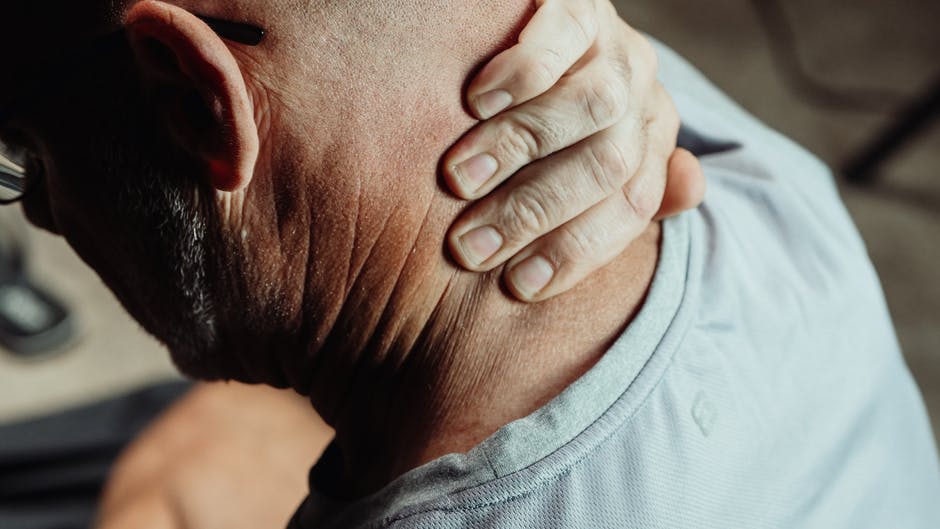Chronic Pain and Illness: 6 Healthy Ways to Cope
Did you know that 6 in 10 Americans have at least one chronic illness? Some common chronic diseases include diabetes, cancer, and chronic lung disease. Along with these Lyme disease is considered a chronic illness that comes with additional chronic pain and is becoming quite common.
Along with these diseases, chronic pain is quite common as well. Around 25% of Americans suffer from chronic pain.
While many of these conditions are treated with certain medications, they cannot completely help with managing the uncomfortable symptoms. That is why finding coping skills is important for those with chronic pain and illness.
Read on to learn about how to cope with chronic conditions using 7 healthy coping methods.
Learn About Your Condition
When it comes to finding the best ways to cope, learning all you can about your chronic illness or pain is a great place to start. This insight will give you an idea of what methods may be more beneficial than others.
This help you identify when your condition may be more likely to flare up and how to manage it overall as well.
6 Healthy Coping Skills for Chronic Pain and Illness
As researchers have learned more about chronic pain and illness over time, there have been many different coping skills that have been discovered to be beneficial. These coping methods can not only be positively impactful for managing certain conditions but your overall wellbeing as well.
Now, it is time to go over the 6 healthy coping skills that can be used to manage both chronic illness and chronic pain.
1. Healthy Eating
One lifestyle change you can make to manage chronic pain and illness is eating healthy.
What you eat has an impact not only on your chronic condition but your overall health and wellbeing. These changes can start small, alongside other coping skills. This will make this change easier to make while still getting some relief.
Making changes in your diet is something that is best discussed with your doctor, as they will be able to help you with working on a diet best for managing your condition.
2. Exercise and Movement
Staying as active as you can comes with many benefits, especially for chronic pain and illness. Staying physically active can be anything from swimming, walking short distances, biking, regularly moving positions, or going to the gym.
Seeing your doctor or a physical therapist can give you an idea of what exercises or movements are best for your illness or pain.
Getting your body moving will not only help you physically but mentally and emotionally as well. Keeping yourself focused on activity makes managing chronic conditions and stressful feelings easier.
3. Engage in Hobbies You Enjoy
Alongside staying busy with physical activity, there are other things you can do to keep your mind busy and active that do not involve strenuous activity.
Engaging in activities you enjoy can help with finding stress relief.
Some fun ideas:
- Gardening/caring for plants
- Coloring books, drawing, painting
- Making music-playing an instrument or creating playlists
- Photography
- Scrapbooking
- Puzzles
- Writing/Journaling
- Knitting or crochet
Whether it is gardening outside or working on a puzzle on a rainy day, finding simple activities can make your days less stressful.
4. Rest When You Need To
While it is important to stay active and busy, resting is necessary for self-care and coping with chronic pain and illness.
Overworking and pushing yourself past your limits can make you feel worse. If you decide that you need a day to rest, then take the day to relax. Having balance in life is very important, which means taking breaks along the way.
5. Reach Out for Help
Managing chronic illness and pain does not have to be done alone. Asking for help is important to incorporate into your list of coping skills because there will be times when help from loved ones may be needed.
Many people struggle to ask others for help, but there is nothing wrong with asking for help! Learning to do so will make managing chronic pain and illness easier.
6. Managing Emotions and Mental Health
One of the most important things you can do for yourself when suffering from either chronic illness or chronic pain is to manage your emotions.
Chronic conditions can have a major impact on people’s mental health, as they constantly are a part of your day-to-day life.
Some common feelings that come from chronic illness and pain:
- Depression
- Anxiety
- Irritability
- Loss of interest
Therapy gives people the opportunity to speak with a professional counselor that has experience helping people work through various issues in their life and managing the difficult emotions that may come along with these issues.
Seeing a counselor can not only help you learn how to cope, but it can help with addressing a variety of concerns
Take Back Your Wellbeing
Knowing how to cope with chronic pain and illness is something that takes time but is worthwhile, as it will help you have a better and more fulfilling quality of life.
Managing difficult emotions and feelings with a counselor is a great way to help cope, but you may be wondering who you can see.
Center of Balance Counseling uses therapies that have holistic, integrative, evidence-based, and body-centered focuses. Including EMDR, Sensorimotor Psychotherapy, and mindfulness practices.
We have experience and knowledge in working with chronic pain and illnesses due to a variety of conditions such as diabetes. We also have specialized experience working with patients who have chronic Lyme disease and chronic fatigue.
Providing a non-judgmental and safe space is the priority, giving you an opportunity to discuss your concerns.
Feel free to contact me if you are interested in seeking counseling or if you have any questions about what I offer.



